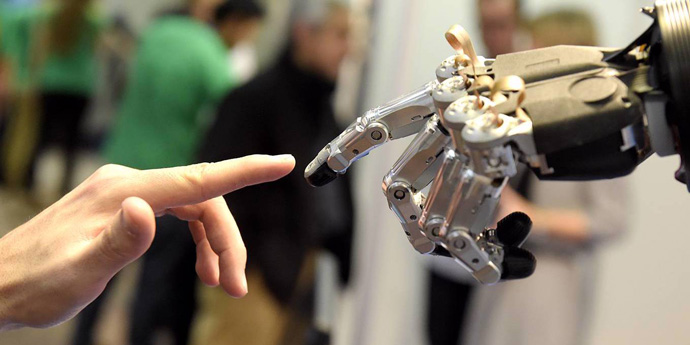Eric Harwit, Professor, University of Hawaii Asian Studies Program
Mar 03, 2021
Trump’s hardline stance against Chinese influence put popular apps TikTok and WeChat in the crosshairs during his final year in office, but his predecessor shares with him a history of restricting Chinese tech companies in the U.S. as well.

Jianyin Roachell, Transatlantic Digital Debate Fellow and Research Associate at Max Planck Institute of Geoanthropology
Nov 20, 2020
As US and China-based cloud computing enterprises globalize, some question whether dual-use of cloud technologies plays a role in advancing digital geopolitical interests.
Zha Daojiong, Professor, Peking University
Oct 13, 2020
China and the United States have long seen technology as both a sign of hope and a reason to worry. The impact of recent U.S. escalations against China remain to be seen.
Joseph S. Nye, Professor, Harvard University
Aug 13, 2020
Since 2017, America’s National Security Strategy has focused on great power competition, and today much of Washington is busy portraying our relationship with China as a new cold war. Obviously, great power competition remains a crucial aspect of foreign policy, but we must not let it obscure the growing transnational security threats that technology is putting on the agenda.

An Gang, Adjunct Fellow, Center for International Security and Strategy, Tsinghua University
Dec 17, 2019
The age of artificial intelligence is coming. But if major powers fail to keep pace, they could be putting mankind at risk.

Fu Ying, Founding Chair of Center for International Security and Strategy, Tsinghua University; China's former Vice Minister of Foreign Affairs
Dec 17, 2019
The United States is trying to make high-tech a platform for strategic rivalry, which is not how China sees it. The reality in the field is a kind of constructive and strategic mutual dependency.

Lucio Blanco Pitlo III, President of Philippine Association for Chinese Studies, and Research Fellow at Asia-Pacific Pathways to Progress Foundation
Dec 11, 2019
US global calls to ban Huawei are falling flat. Even countries that recognized Huawei’s security vulnerabilities would not want to politicize what is supposed to be a technical or business judgment.

Shang-Jin Wei, Professor, Finance and Economics at Columbia University
Nov 20, 2019
Although many societies aspire to provide equal opportunities for everyone, that is easier said than done. People born into different economic and social statuses have unequal educational or financial starting points. This often leads to very different career and life opportunities.

Eric Harwit, Professor, University of Hawaii Asian Studies Program
Nov 15, 2019
Concerns are rising in Washington over the Chinese app TikTok, a video-making social media platform whose popularity has boomed in the U.S. in 2019. With concerns that the app is gathering and sharing the data of American users, TikTok might be yet another casualty in the U.S.’ war on Chinese tech companies.
Ben Reynolds, Writer and Foreign Policy Analyst in New York
Nov 01, 2019
The viewpoints of Washington and Beijing on technology and technology transfers are fundamentally opposed, and unless China hawks in the Trump administration accept this, the chances of a real deal will be low.
Back to Top

- China-US Focus builds trust and understanding between the U.S. and China through open dialogue among thought leaders.
- Our Offerings
- Topics
- Videos
- Podcasts
- Columnists
- Research Reports
- Focus Digest
- Stay Connected
-
Thanks for signing up!
- Get the latest stories from China-US Focus weekly.